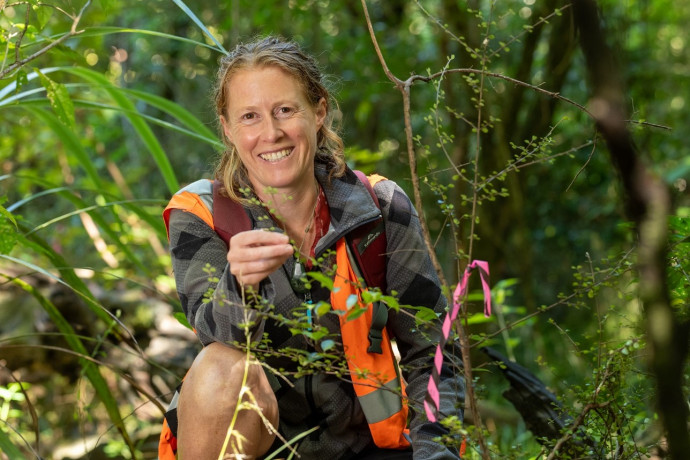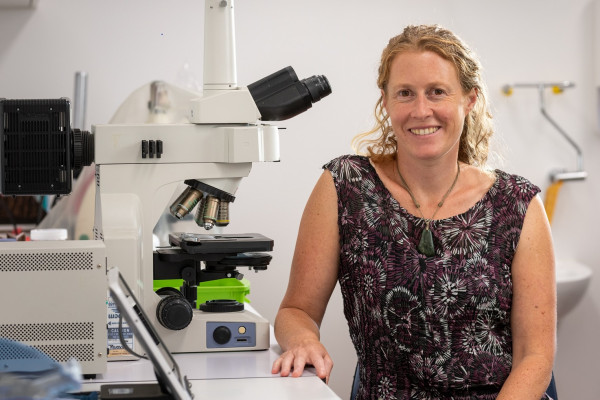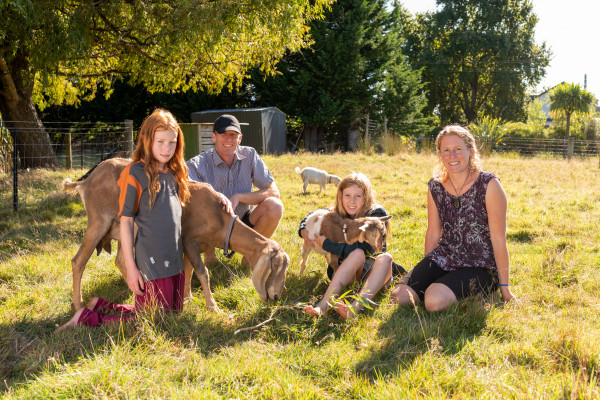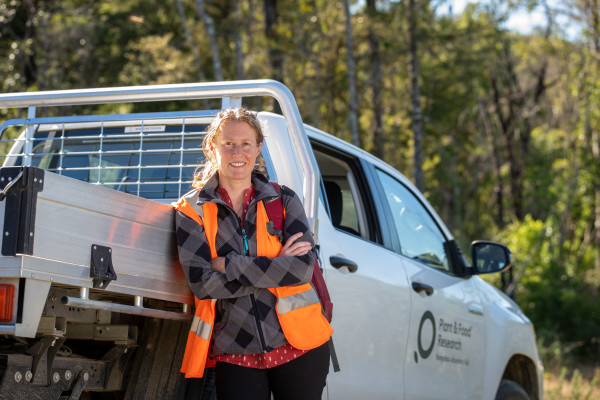Dr Rebecca Campbell

My name is Rebecca Campbell and I am a scientist with Plant and Food Research in Motueka and I'm a very grateful recipient of the MBIE Science Whitinga Fellowship.
Tēna koutou katoa.
I te taha o tōku māmā, he uri ahau nō Engarangi.
I te taha o tōku papa, he uri ahau nō Polani, nō Hamoa.
I tipuake ahau ki Turanganui-a-kiwa. Kei te noho au ki Tasman ināinei.
He kairangahau pūtaiao tāku mahi ki te rangahau ahumara kai, Motueka.
He kaiwhiwhi ahau o te whitinga mai o te rā fellowship.
Ko Rebecca Campbell tōku ingoa.
Q. Tell us about your research.
For my Whitinga, I’m researching plant disease, particularly European canker in apple, Myrtle rust in Myrtaceae plants, and Xylella fastidiosa which is a high risk organism to New Zealand, but not actually here yet.
I study plant pathosystems through epidemiological modelling, which means I look at the pathogen, the plant and the environment and how all of the interacting components fit together.
The language around Covid can be quite handy here – as a country, we've had a lot of conversations about epidemiology and modelling, and what I do is broadly similar. We are trying to flatten the curve of the plant diseases and figure out what management or what environments make it worse or better for the plants.
My particular focus is the spread of the disease in a spatial area, combining fieldwork, lab work and modelling. You get a lot of understanding from following the process from the ground up – from data collection, to validating and building the models. Models offer a simplification and are dependent on asking the right questions, so having a full picture is really important.

Q. What led you into this research?
There’s just so much more to know. With everything you find out, there are always more questions – it’s a problem solving game. So I guess I'm driven by curiosity!
I’ve taken an unconventional research path. I started out in entomology, fragmentation and community ecology with insects. My PhD was in freshwater ecology and that research also brought in a spatial pattern aspect.
When my children came along, I had to leave and do part time jobs. Then Plant & Food advertised a job for a plant pathologist, and I thought: “That's perfect, I can do that”.
Q. How has the Whitinga Fellowship helped?
I was quite excited when I realised that a Whitinga fellowship could bring all of my skills back together! With this research topic I get to bring in all of my ecology background, my spatial background, and the plant pathology and apply it to this new system.
Before this, I would sometimes question whether I was an entomologist, or a pathologist, or a spatial scientist. It’s been a game changer as I now know that it all fits together.
It’s just such an amazing opportunity to focus for two years on research of your own direction.

Q. What effect did Covid have on your research?
I quite enjoyed the lockdowns and working from home, but it was seriously disruptive in terms of field work. I remember a group of us travelled up to Kerikeri to do some field work and meet with iwi, but on the first day we went into lockdown, so we were sent straight home again!
For me personally, lockdown brought opportunity. With everyone working from home, we had to make connections differently. We enjoyed hanging out on our life style block with our animals. I didn't have the guilt of traveling away from my family, I could work and still be there for everyone. I felt quite motivated to take the time to apply for funding too.
Q. How was it applying for the Whitinga fellowship?
When I was applying, I had to check properly that I was eligible. I’d taken time off since my PhD for a family break, about ten years. I just think it's really, really important that the fellowship recognised this, and that actually, I was still an early career researcher because I had been working part time.
At Plant & Food, we're constantly applying for funding, but having such a big personal chunk is very unusual. Up until the point I received it, I wasn't quite ready to say: “I am a pathologist, I can apply for a fellowship”. I felt I might not be experienced enough, even though I knew I had this idea, and I really wanted to do this research.
I’m thankful my supervisor was supportive, and it was perfect timing for me. Now I have the fellowship, I've gone full time and in a scientist role.

Q. What other impacts have there been?
I really want to keep championing this area of research. Through this, people have been reaching out to me, and I’m starting to develop international connections, which makes me keen to apply for overseas funding. Plant disease research is an area with a lot of implications, and I’m really excited for the potential knowledge that we can build and bring in to New Zealand.
Q. Who has supported you in your research?
My parents actually moved from Gisborne to help so I could focus on the research. My husband's a full time teacher and my kids are at primary school. They all really support me in doing this work.
To take on the fellowship, my colleagues have had to pick up other work. They’ve stepped up to free up my time and enable me to focus on the fellowship opportunity – especially my colleague at our Motueka site, Lizelle, who has had to pick up all my collaborations.
With their help, I can focus on my science and I'm really lucky to have that. It's been really inspirational.
